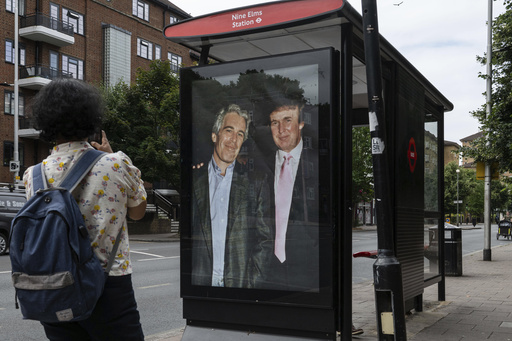The federal grand juries related to the indictment of Jeffrey Epstein and Ghislaine Maxwell on sex trafficking charges did not hear testimonies from the alleged victims, according to Justice Department officials. To back their request for the unsealing of transcripts from these proceedings, officials clarified that only two witnesses, both from law enforcement, testified before the panel.
In a court document filed late Tuesday, officials pushed for the publication of these records, emphasizing the significant public interest involved. They reassured that releasing the documents wouldn’t harm the victims of Epstein and Maxwell’s offenses. Although the memo did not reveal specifics from the grand jury testimonies, it suggested that the transcripts might not hold new surprising information, as much of the content had already surfaced during Maxwell’s 2021 trial or through years of civil litigation.
The Justice Department detailed the roles of the grand jury witnesses to respond to inquiries from two judges who would need to approve disclosing the transcripts. Generally, grand jury transcripts remain sealed unless a judicial proceeding requires public disclosure. Tuesday’s documentation referenced a 1997 2nd U.S. Circuit Court of Appeals decision granting judges broad discretion, indicating public interest alone can warrant the release of grand jury information.
The Epstein grand jury, convened in mid-2019, heard from an FBI agent. Meanwhile, the Maxwell grand jury, assembled across 2020 and 2021, received information from the same FBI agent and a NYPD detective, according to the Justice Department. It’s typical for grand juries to primarily hear from law enforcement and not directly from crime victims, as they mainly determine probable cause.
The filing was signed by Jay Clayton, the interim U.S. Attorney for the Southern District of New York, along with mentions of Attorney General Pam Bondi and Deputy Attorney General Todd Blanche.
The appeal to unseal transcripts followed backlash from some of President Donald Trump’s supporters. The Justice Department, earlier in July, stated it wouldn’t release more investigative materials concerning Epstein, which disappointed some in Trump’s following who had anticipated more disclosures and conspiracy theories surrounding the high-profile financier.
Epstein died by suicide in federal custody in August 2019, shortly after his arrest for sex trafficking, but his case continues to fuel fascination and conspiracy due to his and Maxwell’s associations with esteemed individuals, including royals, presidents, billionaires, and notably Trump.
Ghislaine Maxwell is currently serving a 20-year prison term following her December 2021 conviction for sex trafficking, which involved recruiting minors for Epstein’s abuse. Recently, she underwent extensive questioning by Justice Department officials in Florida, covering details about numerous individuals, her attorney confirmed. This interrogation follows Trump’s directive to gather credible evidence concerning other potential criminal connections, the deputy attorney general noted.
Despite Trump distancing himself from Epstein, dismissing any foreknowledge of his activities, he frequently faces inquiries about the Epstein issue, undermining his administration’s other achievements. When questioned recently about potentially pardoning Maxwell, Trump deflected, choosing instead to highlight his administration’s successes.
The push to disclose grand jury records led to predictions from two ex-prosecutors in Manhattan, suggesting the transcripts would primarily include brief testimonials from law enforcement, substantiating the indictment’s information.
The court document filed Tuesday confirmed that many victim testimonies discussed by the FBI agent and NYPD detective during the grand jury sessions were later heard in Maxwell’s public trial.
The memorandum stressed the increasing public demand for more disclosures in the case. It stated, “Public interest in the crimes of Jeffrey Epstein and Ghislaine Maxwell is undeniable. Moreover, there is great interest in the investigative actions taken by the Department of Justice and the FBI concerning these offenses.”
As per a 2008 nonprosecution agreement, Epstein had pled guilty in Florida to state charges involving solicitation and the procurement of minors for prostitution, avoiding potentially harsher punishments with a 13-month work-release sentence. He was required to compensate victims and register as a sex offender. He faced federal charges for similar offenses in Manhattan in 2019.


